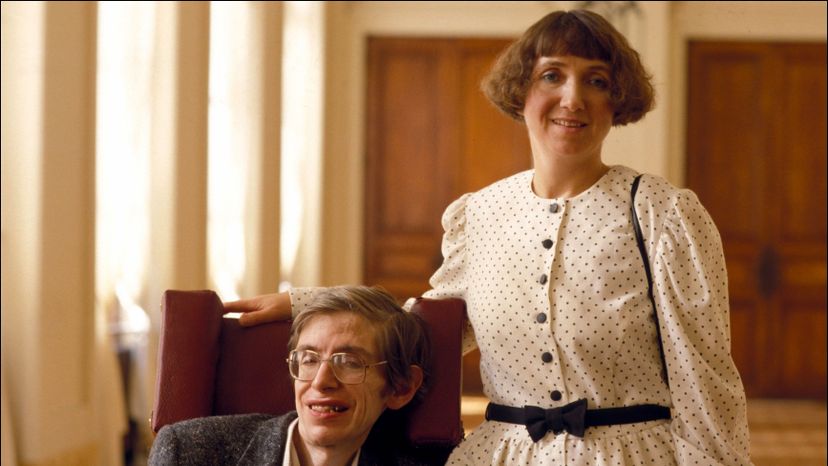Birth of an Icon: Hawking's Early Years

Stephen Hawking was born in Oxford, England, on Jan. 8, 1942, on the 300-year anniversary of the death of Galileo. The family moved from Oxford to St. Albans, a town north of London, when Hawking was 8 years old. His father's routine research trips to Africa and his mother's left-leaning thinking made for a rather interesting upbringing. The fact that Hawking's parents used a former London taxi as the family car certainly drew attention, too.
Although Hawking's interest in math became apparent to him by his 14th birthday, it wasn't until college that he would delve into physics [source: White & Gribbin]. Hawking famously admitted that he was a less-than-stellar student during his early years. His father, who excelled in medicine, wanted him to follow in his footsteps while Hawking attended University College, Oxford. But Hawking's interests would lead him elsewhere -- to the edge of the universe, you could say.
Advertisement
While studying physics at University College, he lived the life of most students, partaking in the university's rowing team and parties. Friends and colleagues recall his outgoing sense of humor and popularity during his youth [source: Ferguson].
But things would soon change after receiving his first degree and venturing to Cambridge for his doctorate.
First, Hawking's crossed paths with Jane Wilde at a campus party in 1963, where the couple hit it off. They married in 1965. Second, the then 21-year-old was diagnosed with amyotrophic lateral sclerosis (ALS), the condition also known as Lou Gehrig's disease that damages nerve cells and negatively affects a person's ability to move. Even more shocking was Hawking's prognosis: At the time, his doctors told him he had roughly two years to live.
Suddenly, Hawking had a new outlook on life. He found a burst of vigor in pursuing his doctorate in cosmology at Cambridge University. This is where his contributions to physics really took root. With time, his work earned him 12 honorary degrees and the Lucasian professorship at Cambridge -- an honor once held by the likes of Isaac Newton and Charles Babbage.
Friend and biographer Kitty Ferguson said Hawking carefully guarded his personal life. Because he needed a voice synthesizer to communicate, Hawking was selective about what he said on certain topics.
The stress of caring for a husband with ALS, as well as their three children, put a lot o strain on that first marriage. (Jane also wrote that he had a "massive and fractious ego.") She came to lean on Jonathan Hellyer Jones, who would later become her second husband. Concerning his first wife's decision to become romantically involved with another person, Hawking said, "It was fine, as long as she went on loving him" [source: Ferguson]. Hawking himself became involved with one of his caregivers, Elaine Mason, which led to Jane and Stephen divorcing in 1991.
Hawking and Mason married in 1995 but divorced in 2006, with lingering allegations of Mason abusing Hawking -- a situation he denied and refused to talk about to police [sources: Ferguson; The New York Times].